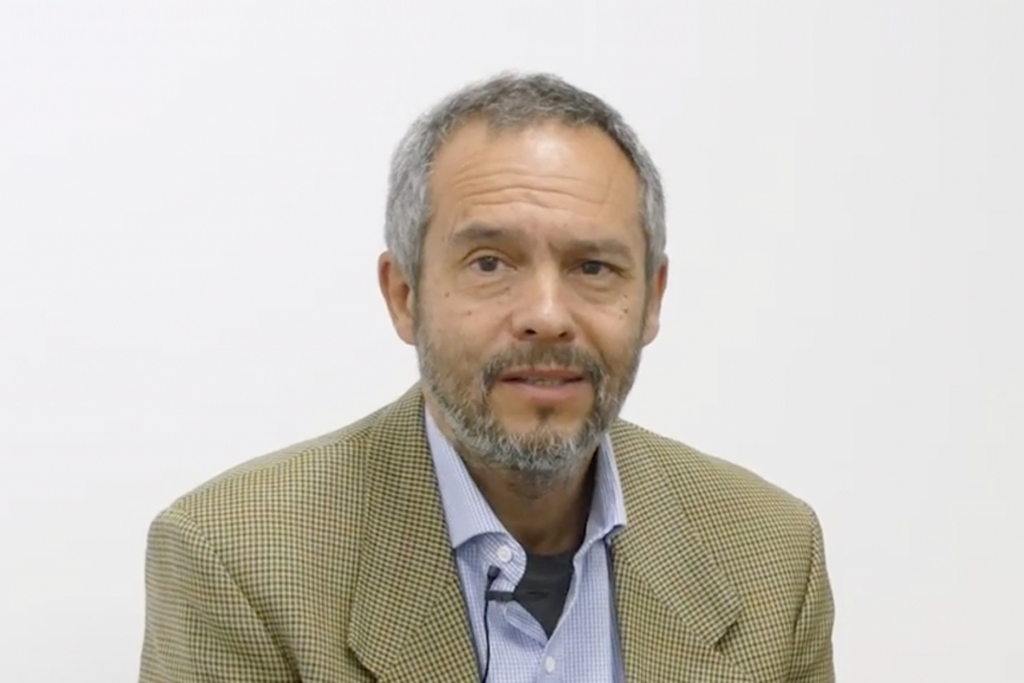Cristián begins by highlighting how crucial it is to avoid looking for immediate changes in education. From his point of view, a good plan for educational transformation is a 20-year project, and three basic issues must be addressed:
- Inclusion and attention to diversity in the classroom
- Learning to collaborate (students, teachers, leaders, families…)
- Using technology in the optimal way, in the service of pedagogy
The approach to this challenge, Cristián adds, must be from a methodological perspective. In this sense, it has designed a strategy in which learning about experiences from people who have already overcome this problem is one of its fundamental pillars. Spain is the ideal mirror because the experiences, without being similar, have a common basic objective: the methodological change, with the teacher as a fundamental link in this task.
Cristián’s project is an Incubator of Collaborative Pedagogical Skills, and its essential characteristics are the following:
- A relationship between the teacher and the model, in which the product is not imposed.
- Working from a structure of questioning in which the product is constructed by themselves.
- A change that has to come from within, and the model has to allow them to “own it”.
- The construction of a set of concrete pedagogical principles, which emerge from the patterns that are repeated in innovative experiences.
- Sensitising from the beginning is essential for the teacher to approach the level at which change takes place.
- Finally, the teacher as the fundamental link in the implementation of an innovative pedagogical model.
In order to implement these principles, a Teachers’ School was created, which focuses on teachers’ collaboration. The development of the teacher within this school is divided into 4 stages:
- Educational paradigm: discussing them so that teachers can rethink them
- Competences, curriculum and methodologies: discussing these topics from the official curriculum and methodologies to build didactic sequences.
- Concretization of projects: taking those sequences to refine them in order to build definitive projects.
- Project development: implementing the final project and evaluating its impact.
The selection of teachers to participate in this project contemplates three fundamental elements:
- It is voluntary; the application must come from the centre concerned.
- There must be critical mass, a minimum of 10-12 teachers.
- Teachers should not necessarily be of the same level; it is better to bet on the diversity of profiles.
- Leadership must be present; within those 10-12 teachers, the management team must be represented.
- Immediate impact is offered by delivering training pills that teachers can use immediately.
The development sequence of the modelling process follows a series of patterns that define it:
- Work is carried out in groups of various sizes, reaching 240 teachers.
- The trainer of trainers does not take on a leading role and people learn by doing.
- Training takes place on Friday afternoons and Saturday mornings.
- Phase 2 takes place in a holiday period with the invitation of teachers who have experienced a process of change and educational improvement in their schools.
Regarding the first signs of the impact of the initiative, the expert points out that there is evidence of improvement measured by the percentage of schools that maintain the development of the projects designed in the experience. From the opposite perspective, it has been found that the centres that do not sustain the dynamics of change share the pattern of the absence of representatives in their management team.
Biography
Cristián Infante Gaete, married to María Elena Downey and father of four children. He was born on 10th May, 1961. He is a lawyer from the University of Chile and Professor of History at the Alberto Hurtado University.
After fourteen years of working as a lawyer in the Telephone Company of Chile, and after participating in the foundation and board of directors of the Fundación Romanos XII, an entity that supports 3 technical high schools and a Training Centre in trades, and of FORJAR A.G., an association of non-profit institutions dedicated to the training of young people with limited resources, he decided to make a change in his life and dedicate himself full time to the world of education.
From 1998 to 2004, he was the Director of the San Francisco Javier de Huechuraba school and, in 2005 and 2006, he studied a Master’s Degree in Professional Education at Saint Joseph University of Philadelphia, with a scholarship from the World Bank. Then, from 2007 to 2011, he worked as Director of the San Luis Beltrán school in the commune of Pudahuel and he is pursuing a PhD in the use of technologies in education at the School of Engineering of the Pontificia Catholic University.
During this time, he supported and/or participated in the board of directors of various educational institutions in vulnerable sectors such as the Enrique Alvear school in Cerro Navia, the Colegio Padre Arrupe in Quilicura, the Liceo Valle Hermoso high school in Peñalolén, the Liceo Erasmo Escala high school in Peñalolén, and provides consulting services for the Ministry of Education.
He teaches as an Associate Professor at Saint Joseph University in the Master of Educational Management at Alberto Hurtado University and in the Diplomas and Masters of the School of Education at Diego Portales University.
In March 2011 he became the Executive Secretary of the Vicariate for Education.
Currently
Currently, the project is in its next calls and there are already 22 candidate schools, of which 12 are repeaters (they send other groups of teachers). The Chilean Ministry of Education classified 460 vulnerable schools to experiment with this methodology, and work will begin with 16 of these schools.






